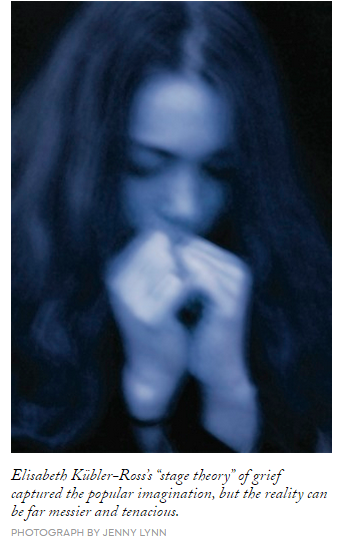"The deaths I have experienced have mostly been at an arm’s length, due to family tensions, geographical separation, or a combination thereof. Until recently, I’d only ever been to one viewing — a member of my stepmother’s family whom I barely knew.
As a result, I have no blueprint for the what to expect in the social situations that have come with an event like this. I have been forced to guess my way through, at a time when my typical abilities are compromised by the emotional overload brought about by loss and grief. How well have I done? I honestly do not know. I don’t know what standard I’m being held to, and by whom. I have had to simply do my best, but I have been haunted by my struggle to know exactly what I need to do to be a good friend to someone who is no longer here to tell me what she expects".









